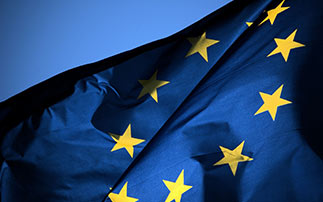keywords: EU4Health, health crisis, European Union, health
The global crisis caused by the Covid-19 virus has shown the flaws in our health systems – ill-prepared for a crisis of this scale – revealed in particular by the lack of emergency medical equipment in several countries (beds, respirators, protective masks, etc.).
The epidemic has damaged the image of the EU: the principle of solidarity has been called into question, national sovereignty has been withdrawn, borders have been closed, etc. European values have been undermined, while the EU has seemed to take a back seat in the face of emergency policies decided by the Member States.
In her annual State of the Union addressed on 15 September 2021, European Commission President Ursula Von der Leyen affirmed her commitment to create a ‘European Health Union’ by announcing an investment of €50 billion so that “no virus will ever again turn a local epidemic into a global pandemic”. So, is the EU learning from the health crisis? Is the European Health Union possible?
What role for the EU in the field of health?
The health crisis revealed the disparities between Member States, some of which were not prepared for the mass hospitalisation caused by the epidemic. This was the case for some European countries with above-average health budgets, such as France, which has the highest health budget in the EU, equivalent to more than 11% of national GDP, but only 3-4 acute care beds per 1,000 inhabitants (the same as Greece and less than Poland).
Although health is a sovereign area, the EU does have a role to play, particularly in setting EU standards that meet the needs of Member States. The EU has a responsibility to re-prioritise health and to provide guidelines for Member States’ spending.
This is in line with the EU Health Systems Strategy, launched in 2014 to develop coordinated actions at EU level to improve the efficiency, accessibility and adaptability of health systems. The efficiency, accessibility and adaptability of national health systems are analysed in each cycle of the European Semester, a framework used since 2011 to coordinate the economic policies of EU countries. As of 2019, more than a third of EU countries have received recommendations on their health systems, with progress monitored by the Commission.
European solidarity in the face of crisis
Despite much criticism, European solidarity during the Covid-19 epidemic did exist. In March 2020, the European Union set up the “rescEU” strategic reserve, a joint European reserve of emergency medical equipment, 100% financed by the European Commission and hosted by several Member States. France, Spain, Italy and the Czech Republic, among others, have benefited from equipment provided by rescEU. The distribution is managed by the Emergency Response Coordination Centre, which is part of the EU’s Civil Protection Mechanism. The mechanism, which has been in existence since 2001, is used to provide humanitarian and material assistance in the event of natural or man-made disasters anywhere in the world. It was mobilised during the health crisis to coordinate and fund the provision of medical equipment. In addition, the European Solidarity Tracker shows the concrete solidarity between the EU and its Member States in terms of resources and equipment.
EU4Health: the new European health programme
A new programme, a bigger budget
On 24 March 2021, the European Commission published the regulation for the new health programme “EU4Health“, valid for the entire programming period 2021-2027.
The priorities of the new programme are disease prevention and resilience of health systems, as well as tackling cross-border health threats. The total projected budget over seven years is €5.1 billion, which is ten times more than the budget of the third health programme (2014-2020 programme), which EU4Health succeeding. Indeed, the previous programme had a budget of €446 million, an amount that seems derisory compared to other funding programmes of the same period (for example, the LIFE programme had a budget of €3.4 billion over the 2014-2020 period). With this new programme, the European Union is giving priority to a health policy based on prevention and is equipping itself with the necessary means to deal with any new upheavals.
The priorities for 2021-2022
The EU4Health 2021 work programme is organised as follows:
- Crisis preparedness – €106 million
- Disease prevention – €101.35 million
- Health systems and personnel – €68.49 million
- Digital – €32.5 million
- Other actions – €3.35 million.
These priorities are valid for all calls for proposals published in 2021, whose actions can then be carried out over two years, i.e. until 2023. A new work programme is expected in early 2022. Calls for proposals are published twice a year in groups of about ten. Thirteen new calls for proposals were issued on 14 October 2021, with a total budget of €43.85 million. The deadline for applications is 25 January 2022.
In addition, the European Commissioner for Health, Stella Kyriakides, announced on 25 October the restoration of operating grants in the EU4Health programme for health NGOs, a measure called for by many NGOs, such as the European Public Health Alliance (EPHA) and Alzheimer Europe.
Although the crisis initially seemed to cause the EU to retreat, Europeans quickly realised the need for solidarity to overcome this global crisis. The EU is essential to overcome the economic differences between member states, and thus to achieve a common resilience of European health systems. The European Health Emergency Response and Preparedness Authority (HERA), established in September 2021, will play a central role in coordinating European health policies. With plans for a European Biomedical Research Agency also in the pipeline, the European Health Union appears to be well on the way to becoming a reality.
Julie Naureils




